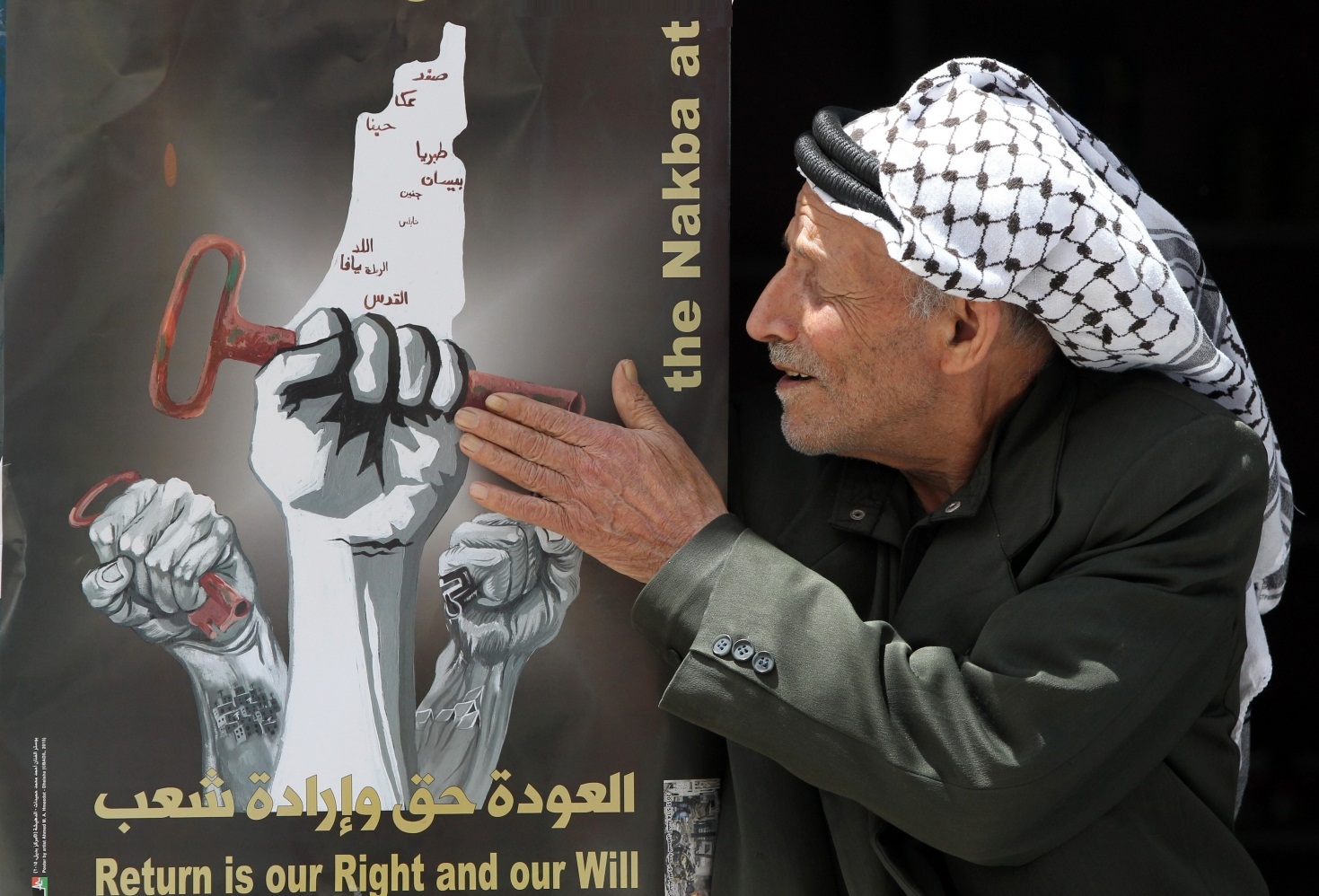
RNA - The Nakba Day is officially marked every year on May 15, one day after the usurper regime of Israel came into existence in 1948. Some 750,000 Palestinians were expelled from their lands and scattered across refugee camps in occupied Palestine and neighboring countries. Over five million are still displaced.
Since 1948, the Zionist regime has denied Palestinian refugees the right to return - despite United Nations resolutions (all vetoed by the United States) and International Law that upholds people’s right to return to their homelands. It’s the perversion of justice and exorbitance of legal authority. The global West, led by the United States, the Israel lobbyists, and certain Arab officialdom are still doing all they can to force the Palestinians to recognize Israel.
To this end, they have blockaded Gaza altogether. US lawmakers have also advanced a legislation that penalizes international participation in the growing movement to boycott, divest from, and sanction Israel (BDS) for human rights abuses against Palestinians. As per the law, the US puts pressure on other countries not to engage in BDS against Israel of any kind, including refusal to do business with illegal settlements.
The potential implications of this colonial policy extend far beyond the ongoing negotiations with the EU, as its language refers to all international trade agreements. The idea is to persuade the world to support the Israeli apartheid and to force the Palestinian government to accept the current balance of power, the perpetuation of which is contingent upon their submission to unfair circumstances and the types of blackmail it exerts.
Then again, the American legislation, which actually encourages illegal settlement building while strengthening the far right in Israel, shows that the international boycott movement has actually been an increasingly powerful means to challenge Israel's impunity when it comes to Palestinian rights and International Law.
For instance, Norway’s largest trade union body has just voted in favor of economic, cultural, and academic boycott of Israel over its treatment of Palestinians. Despite US pressures, the Norwegian Confederation of Trade Unions made the decision at the Congress on Friday, May 12. The Congress is the organization’s highest authority and holds its meetings every four years. The Confederation is launching an effort “to achieve an international economic, cultural and academic boycott of Israel.”
It is not yet clear how the proposed ban would be implemented. But that’s not the point. The point is that the global boycott serves as an instrument for Palestine to be recognized as state, and to bring an end to Israel’s occupation of Palestinian land and the Gaza blockade. The right of return for refugees to their homes from where they were forcibly removed cannot be compromised either. It’s a right guaranteed by International Law and enshrined in UN General Assembly Resolution 194.
All told, the Nakba is not just about the Palestinians. The Middle East faces constant and often foreign-backed conflicts and violence. As we see in Syria and Yemen, this trauma touches communities and reaches across the planet. From Gaza to Syria, from Yemen to Iraq, the examples are tragically countless and related. As the ongoing wars suggest, Israel and its Western allies will stop at nothing to expand their territories. Just like their Iraqi, Yemeni, and Syrian counterparts, Palestinians also have nothing to lose if they resist the US-backed Israeli machinery of repression, property destruction, and incitement to violence.
International Law says Palestinians have the legal right to fight occupation and they can use force to achieve their independence. International Law also says Israel’s system is designedly one of repression and has no right to self-defense. This has been confirmed time and again by UN reports, resolutions, historians, and military archives. They say, in order to achieve peace, Israel and the United States must recognize their responsibility for the crime of Nakba, as a first step towards accountability and a just solution to the conflict.
The Nakba is not just a tragic moment in history to be buried in the past or commemorated once a year either. It has been an ongoing process from that time against all of the Palestinian people, through Israeli policies which have led to prolonged exile, oppression, and discrimination.
Palestinians have not forgotten the Nakba, nor will the international civil society ever be silent in the face of the ongoing Nakba. Indeed, the successful divestment campaigns, protests and coalitions being built with various other groups and nations are a testament that the international civil society has not forgotten about the Palestinian Nakba. The old will not die and the young will not forget.
847/940